With a gift to RVH, you are making world-class specialized care possible, from state-of-the-art equipment, technology and ground-breaking programs to enhanced spaces, research, and innovation. These are just a few recent examples of the impact of community support on the life-saving work of RVH.
Baytowne Hyundai and the Williams Family
The Williams Family and the Baytowne Hyundai team have generously donated $100,000 to the Keep Life Wild campaign.
With roots in the community that spans 60 years, the Williams have seen this region grow. Surrounded by the Baytowne Hyundai team, Jim Williams said, “It’s has been the hard work and efforts of the entire team that has made this possible and now together we have the opportunity to change some lives.”
Supporting the expansion of RVH, particularly the Neonatal Intensive Care Unit (NICU), is important to the Williams Family. Their gift will help to ensure our health centre can continue to provide specialized, world-class care to everyone in our region who needs it for generations to come.
Two of Four New Mammography Units are Now in Place at RVH
Two down, two to go.
We have you to thank for the new 3D mammography equipment that has recently arrived at RVH.
Due in part to the incredible generosity of donors like you, our community now has access to leading-edge diagnostic imaging to detect breast cancer as early as possible.
Half of our new tomography-capable mammography units have been installed with the remaining machines to come throughout the spring and summer. They’re being replaced in succession to ensure unimpeded service.
The new units are capable of capturing images in 3D, generating substantially more detailed pictures than the 11-year-old counterparts they are replacing. Radiologists will have a clearer image, detecting abnormalities more easily, and ensuring treatment can begin as soon as cancer is identified.
About 57 mammograms are performed at RVH daily. That’s 57 women per day who may receive life-changing news.
Early detection saves lives, and, because of you, more women will be diagnosed sooner so they can start receiving treatment right away. This new equipment will likely perform more than 200,000 scans in its lifetime, helping women in our community for years to come.
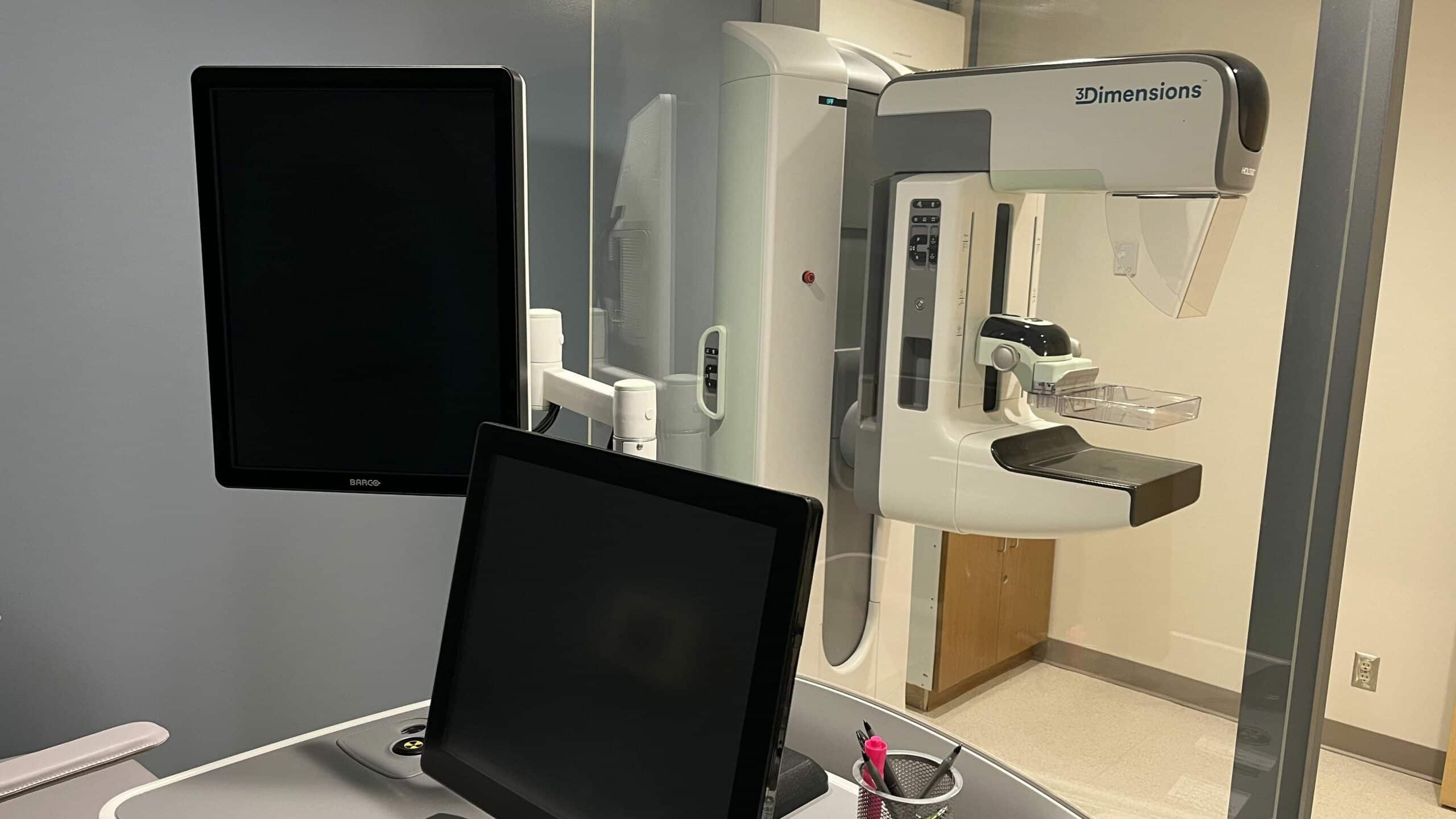
PET-CT Has Touched Down at RVH
Construction is now underway on the space that will house the new positron emission tomography–computed tomography (PET-CT) scanner at RVH. The PET-CT has arrived and will be installed over the next few months with the goal of scanning our first patient by the end of summer or early fall.
This vital equipment has been funded in part by generous donors like you and through the support of the provincial government.
We asked three of RVH’s leading PET technology experts to give us an overview of the science and to share how this will impact patient care in Simcoe Muskoka. Click here to read a compilation of answers from radiologist and PET-CT Lead, Dr. Cory Ozimok, Medical Director of Imaging, Dr. Raj Grover, and Manager of Medical Imaging, David Wilson.
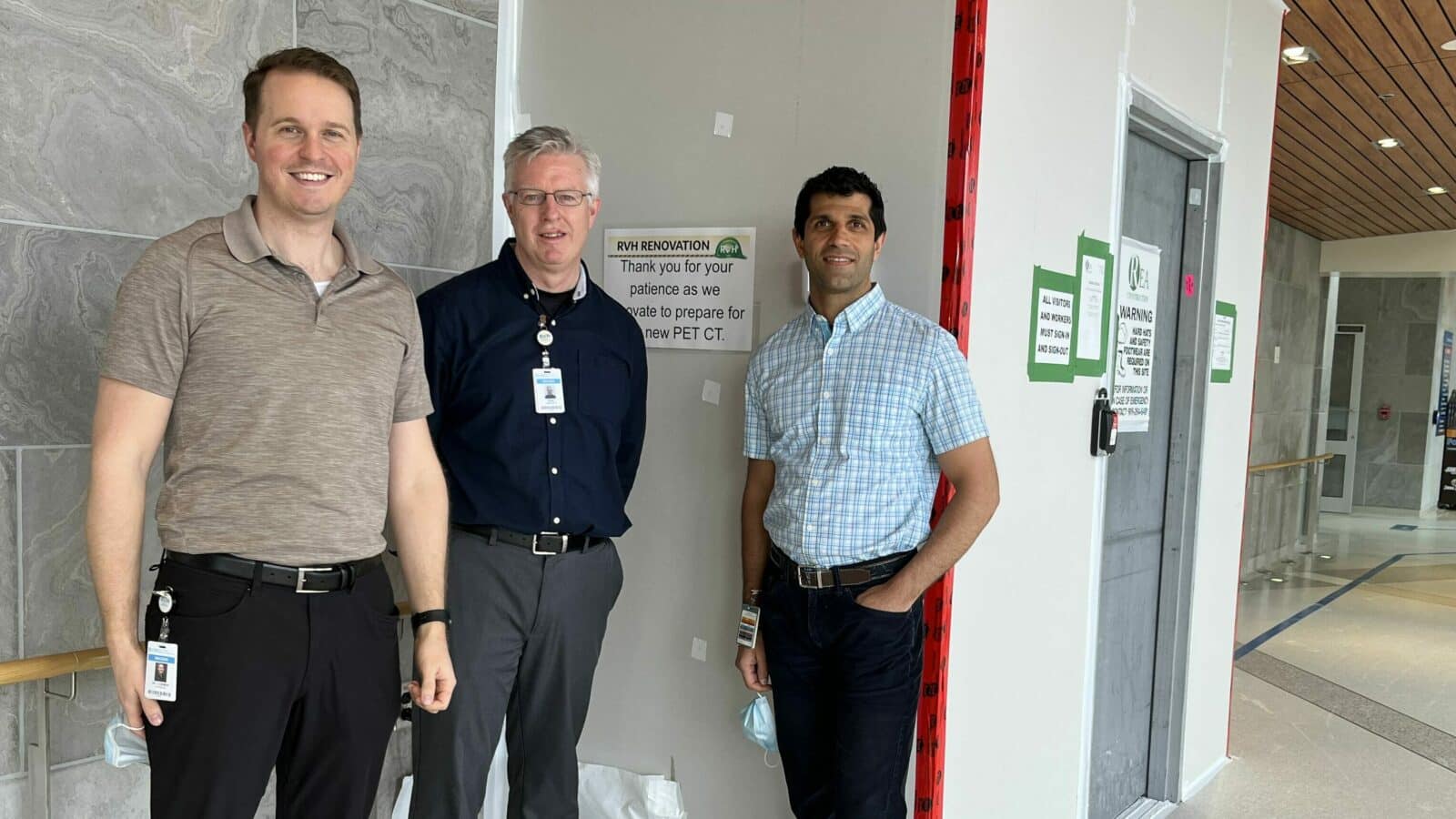
Improving Outcomes For Patients With Prostate Cancer, Thanks To You
Thanks to donors like you, RVH now has new, state-of-the-art technology to paint doctors a more fulsome picture of prostate cancer so they can determine the best course of treatment for their patients.
This leading-edge technology fuses magnetic resonance imaging (MRI) with real-time ultrasound guidance so suspected cancerous tumours can be accurately found and biopsied, regardless of how difficult their location may be to reach.
Previously, it was easy to miss high-grade tumours because biopsy samples could only be taken randomly. Now, utilizing the 3D map and real-time syncing of MRI and ultrasound, tumours within the prostate are visible in detail, providing the exact size and location of abnormal tissue. This allows for targeted biopsies and improved sampling to more accurately determine if cancer exists, reducing the need for additional biopsies in the future.
With the fusion technology, doctors can also tell the difference between aggressive forms of prostate cancer and slower-growing ones. With more than 600 patients being treated for prostate cancer at RVH in the last year, this distinction is very important. It increases the diagnosis and treatment of high-risk prostate cancers, while also saving patients from unnecessary treatment for lower-risk instances.
The Keep Life Wild campaign will bring more state-of-the-art technology like this to RVH to further expand cancer care for everyone living in our region who needs it. Donate today to support innovation and enhanced care at RVH.
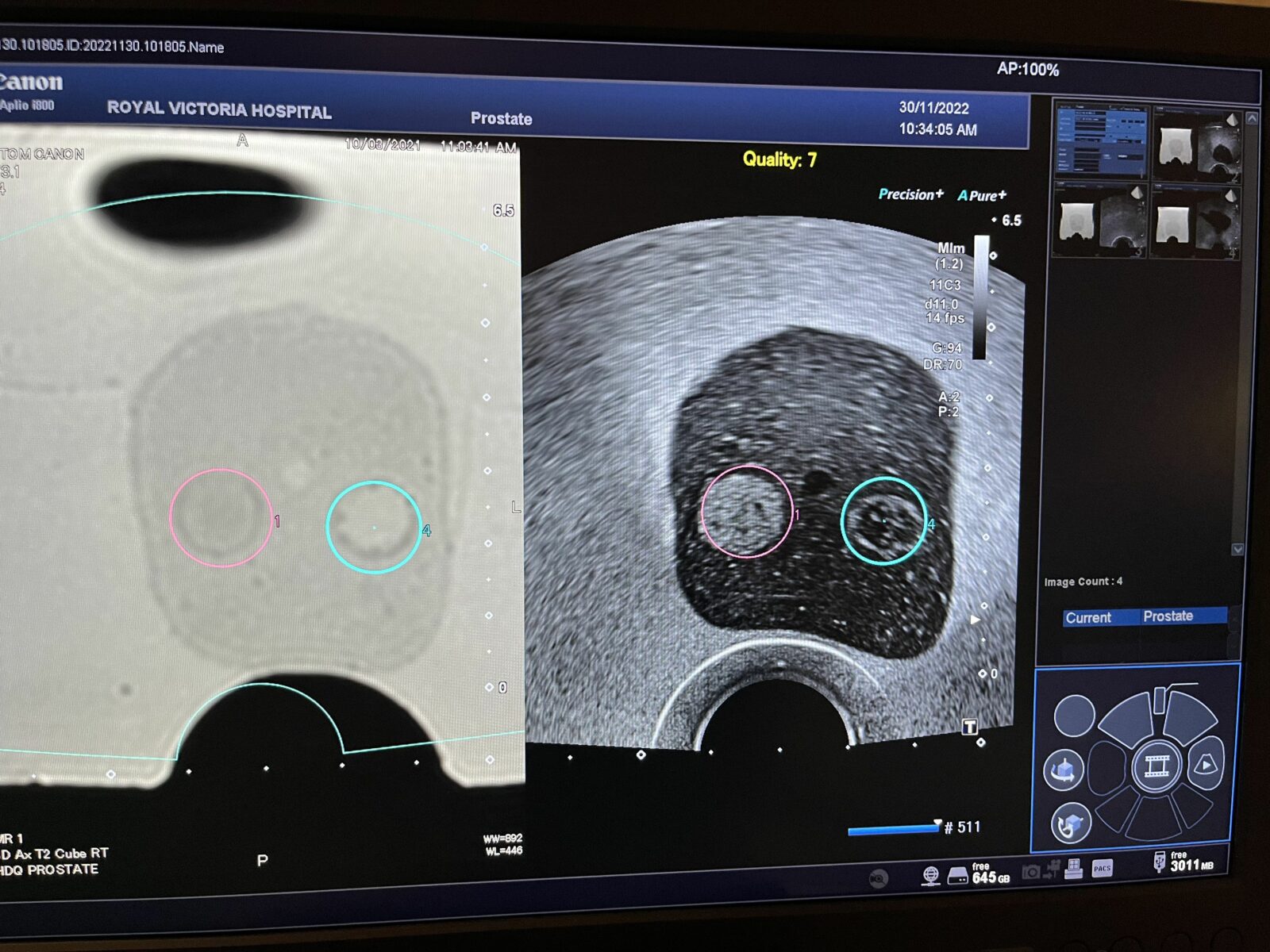
Sandra Schmirler Foundation Supports RVH’s Youngest Patients
Having a child in the Neonatal Intensive Care Unit (NICU) is an emotional time for families. Knowing their babies and care teams are being supported by the very best equipment can make that NICU journey a little less overwhelming.
That’s why partnerships with organizations like the Sandra Schmirler Foundation are so important to advancing care for our region’s most vulnerable patients. Patients like Christopher Cobble and his family.
The Sandra Schmirler Foundation has purchased a Giraffe Incubator for the NICU at RVH. The incubator supports all the complex medical needs of a baby receiving critical care, while allowing families to play their part in nurturing, loving and being present for their child.
It connects to the Giraffe Shuttle, which supports RVH’s one-bed, one-baby approach to care. This means that babies who need to be transported within the hospital can be moved safely while still being connected to all their vital supports.
In its lifetime, the Giraffe Incubator will care for many critically ill and premature babies who need neonatal intensive care at RVH. The impact of this gift goes far beyond the equipment. It represents the opportunity for every baby who lives in our region to have a healthy start and for that child’s family to feel comforted, knowing their baby is getting the very best care possible by medical teams with the very best equipment.
Named in memory of Sandra Schmirler, a curler and Canadian Olympic gold medalist who died of cancer in 2000, the Sandra Schmirler Foundation is dedicated to supporting babies born too soon, too small, or too sick so they have a chance to grow up to be a champion like Sandra.
On February 19, 2023, the Sandra Schmirler Foundation is hosting its annual telethon, live on TSN, to support the health of babies across Canada, including here at RVH.
We are grateful to everyone involved in the Sandra Schmirler Foundation for their investment in the future health of our community.
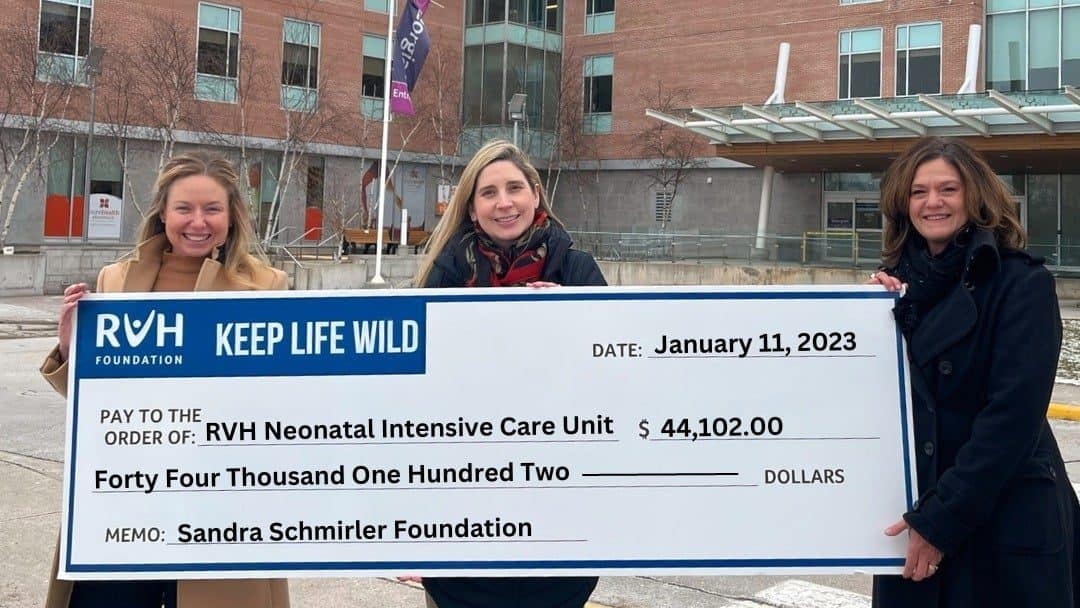
Punching Above Our Weight In Research
You might not be aware that RVH is a small but mighty research engine, publishing alongside some of the best in the world. Last year, our Centre for Education and Research continued to break boundaries by developing new partnerships, publishing more than any year before and expanding on grants and rewards programs.
Why is this important? Because through research, RVH uses the data collected to improve patient care, not only for those in our hospital but for the community at large. And by participating in clinical trials, we’re able to access promising opportunities outside of traditional treatment options, giving our patients more choices when it comes to their care.
Donor support and a partnership with Alectra, specifically, has opened the door for RVH to conduct homegrown research to find optimal ways to address systemic health-related challenges facing our region. Over the next few years, the Alectra Fund for Health & Social Innovation will allow us to conduct two studies: one to improve the outcomes of hospitalized seniors and the second to learn how to offer better mental health and addictions support to vulnerable populations enrolled in vocational training programs.
Learn more about these projects and the Alectra Fund for Health & Social Innovation here.
RVH to Enhance Cancer Diagnoses with New, Advanced Technology
Have you heard the exciting news? On Friday April 22, the dream was made reality when RVH announced the addition of a PET-CT scanner, which is expected to be operational by summer 2023. This means access to advanced diagnostic imaging close to home, earlier cancer detection and treatment beginning sooner. RVH anticipates performing more than 1,000 scans the first year the PET-CT is in operation. RVH will be the only hospital between Newmarket and Sudbury to offer this technology.
A huge THANK YOU to Barrie Welding and Machine for its $500,000 donation towards this initiative, and to Jane and Dr. Paul Voorheis, long-time RVH radiologist, former Imaging Medical Director and Interim Chief of Staff, for their incredibly generous donation to the PET-CT scanner. That’s the power of donor support! Read more about this exciting announcement here.
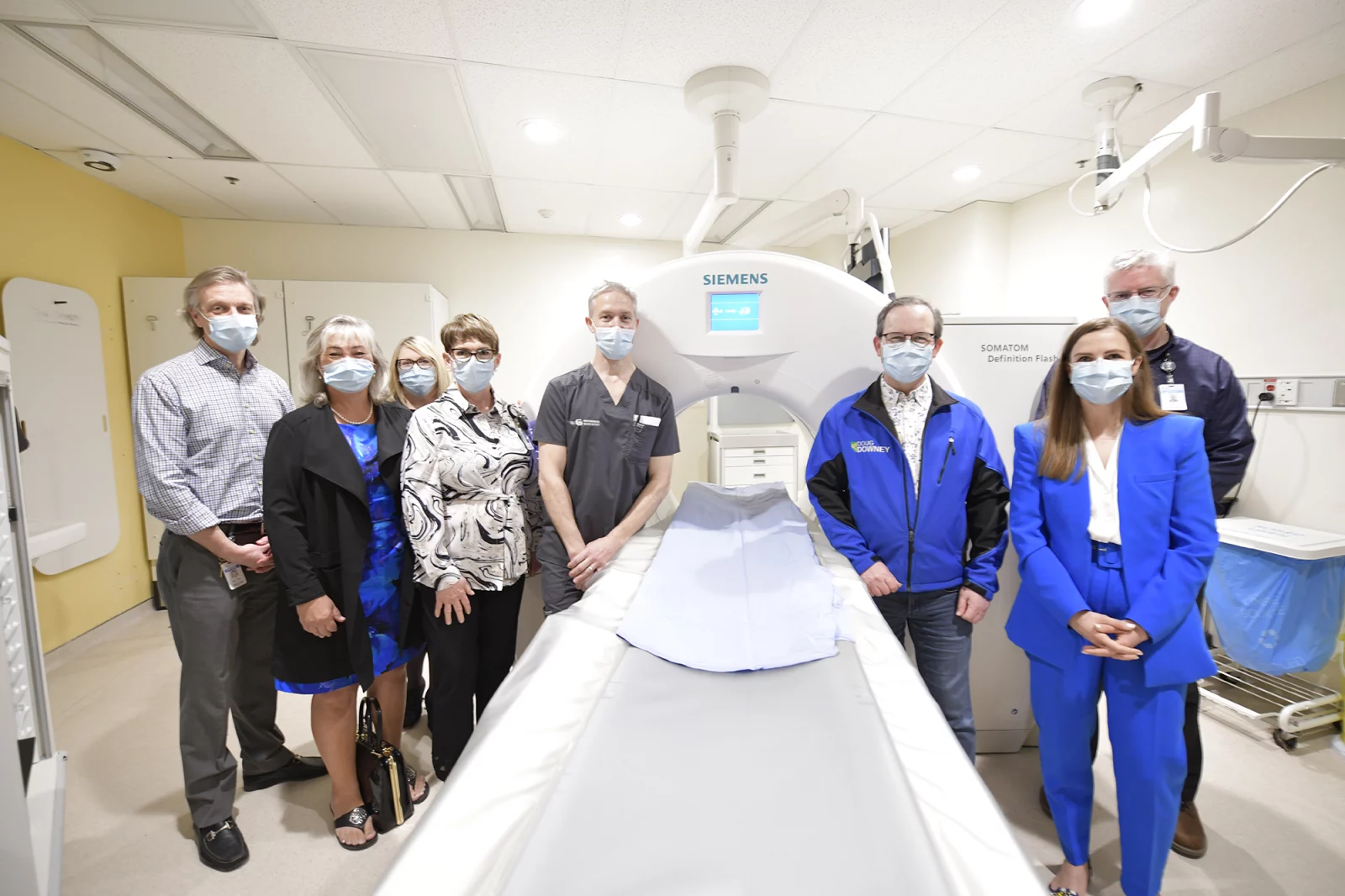
Great News for Patients Requiring Breast Cancer Surgery

RVH is the first regional health centre in Canada to introduce the MOLLI device—a precise, easy-to-use new technology for breast cancer surgery. This new tool allows for greater precision, less visible scarring, and eases surgery wait times.
According to Dr. Renee Hanrahan, a Canadian leader in oncologic and reconstructive breast surgery at RVH, the MOLLI device means better outcomes for patients. “MOLLI is not only intuitive, but it also allows for greater precision when choosing an incision site, which is important for an oncologic and aesthetic outcome and from an efficacy standpoint”, says Hanrahan. Building on 125 years of history, RVH continues to pursue excellence in patient care, and it is thanks to community donations that the purchase of the newest and most advanced technologies are made possible. To learn more, click here.
A Clinical Backbone of RVH Gets a Redevelopment
When thinking of RVH, your first thought probably isn’t about the laboratory. However, more than 70 per cent of patients’ diagnoses rely on the laboratory for information and results.
“Without the lab, your physician can only offer an educated guess,” says Arbour MacLachlan, RVH Supervisor, Dept. of Pathology and Laboratory Medicine.
RVH’s Laboratory recently underwent much-needed renovations and replacement of decade-old equipment to keep up with the evolving and growing demand. Thanks to the support of donors like you, these renovations will mean shorter wait time for patients’ results, faster diagnosis and better care overall.
The 120 member laboratory team process up to 2.5 million tests a year, not only for RVH patients, but other sites as well. The laboratory provides clinical services for other hospitals in the region including Georgian Bay General Hospital, Collingwood General and Marine Hospital, Muskoka Algonquin Healthcare and others. They even do testing for Base Borden. The lab performs many types of testing – blood, urine, vital fluids, tissues, and much more. The improvements resulting from this renovation were made possible by your generous support and offers better safety, intuitiveness and reliability for the laboratory, as well as making the processes more efficient and streamlined, all of which benefit patient care.
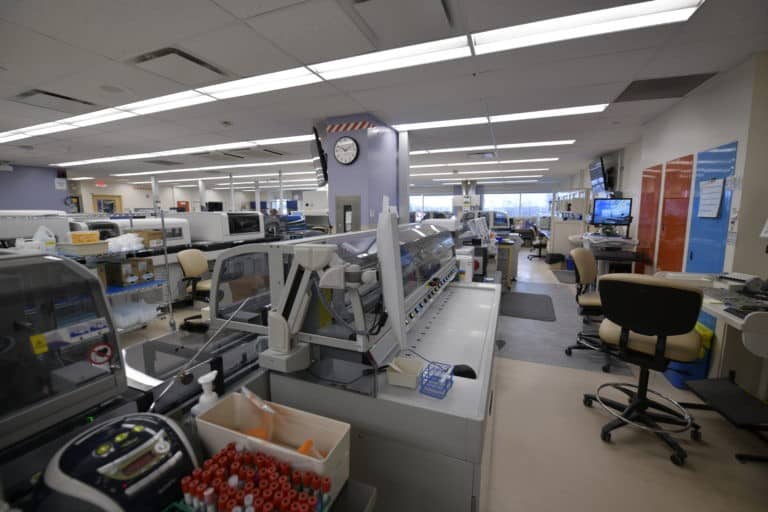
Expanding the ‘Gold Standard’ of Cardiac Care to Patients Across the Region
Thanks to dedicated donors like you, RVH has continued to expand access to advanced cardiac care to patients across Simcoe Muskoka. The Simcoe Muskoka Code STEMI protocol, first introduced in November 2020, means that most residents with heart attack symptoms, who visit their local Emergency Department or call 911, are taken directly to RVH where the advanced heart team is waiting for them. The protocol has been gradually implemented throughout the region over the past year and means the ‘gold standard’ of advanced cardiac care can be received in 120 minutes or less upon first medical contact. Your generosity made the regional cardiac program at RVH possible, opening in 2018. Since then, the cardiac team has completed over 10,000 heart procedures; keeping your loved ones close to home while receiving treatment.
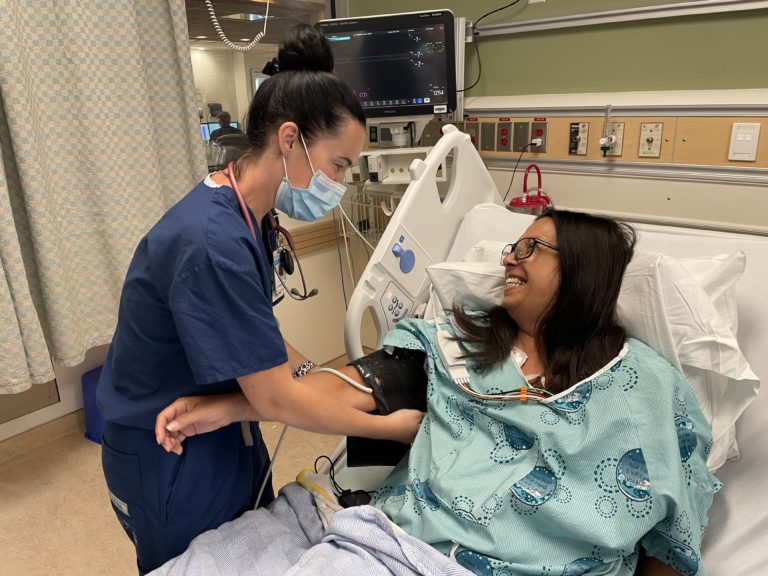
Adapting to Extraordinary Circumstances
Thanks to dedicated donors like you, RVH has continued to adapt to the changing needs of our community during the pandemic. An additional room was built in the ICU and other areas of the health centre were converted into temporary ICU beds to ensure the best possible care experience for patients with COVID-19. Additional ventilators were purchased, and nurses trained in critical care were added. RVH was also able to care for more than 220 patients who were transferred from hospitals that had reached capacity in the Greater Toronto Area as well as one from out of province. RVH even established a Critical Care Transport Team, led by Dr. Chris Martin, RVH’s Chief and Medical Director of Critical Care; Emergency and Intensive Care. The team made heroic efforts to ensure that patients from surrounding areas were transported quickly and received exceptional, in some cases, life-saving care.
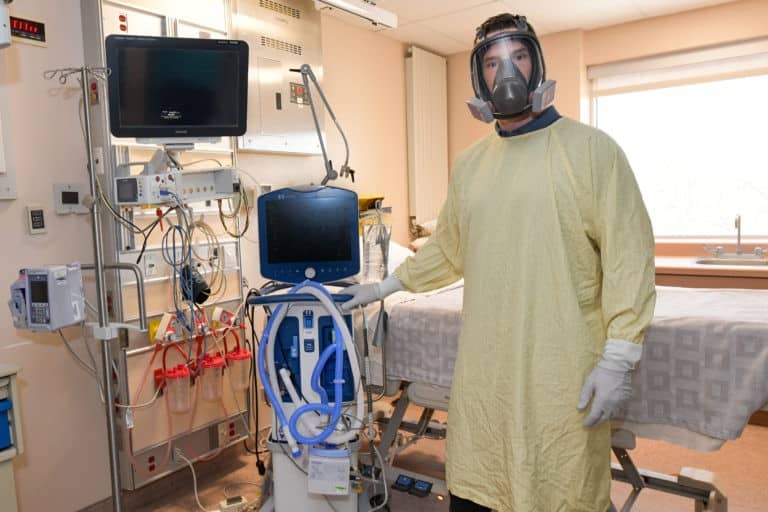
A Welcoming Space for People Recovering from Addiction
RVH’s Rapid Access Medicine Clinic (RAAM) and Withdrawal Management Services moved many services to a virtual model during the pandemic. At the same time, knowing that patients would eventually return to in-person care, the team began renovations to their bricks and mortar space. The goal? To create a holistic, healing and welcoming environment. Changes included the addition of a gender-neutral bathroom, new flooring, an updated nursing station and kitchen area, art, and a renovated group room that allows for in-person and virtual groups. With your decision to donate to RVH, you’re supporting a health centre that prioritizes patient care and invests in important upgrades, even in the most difficult times.

